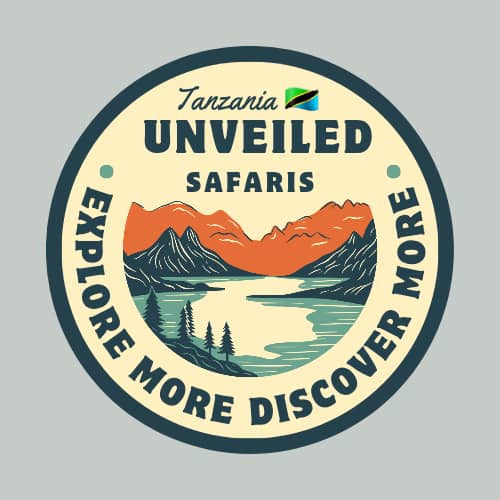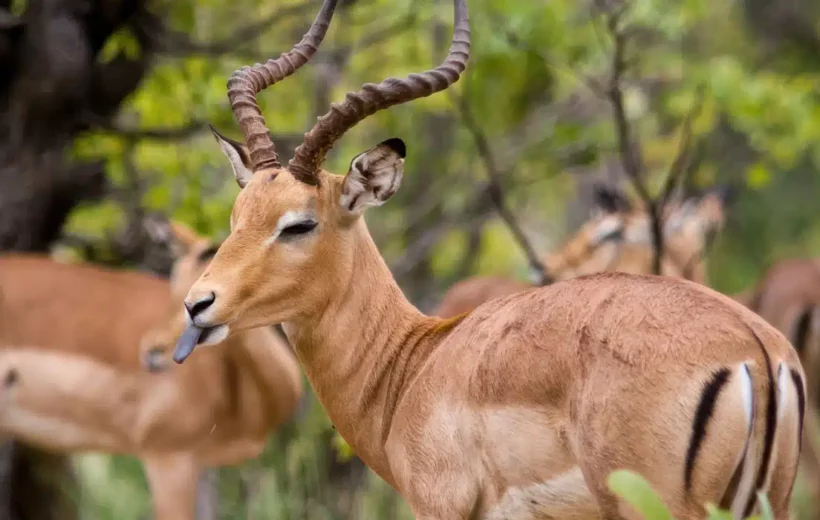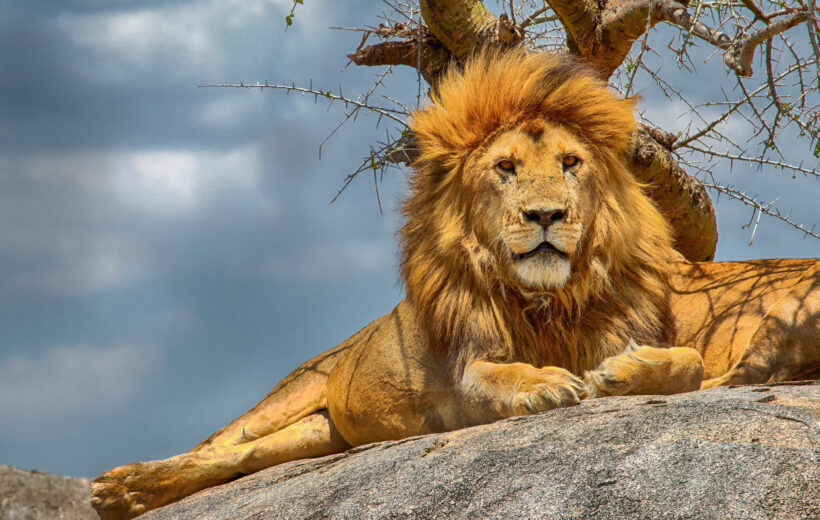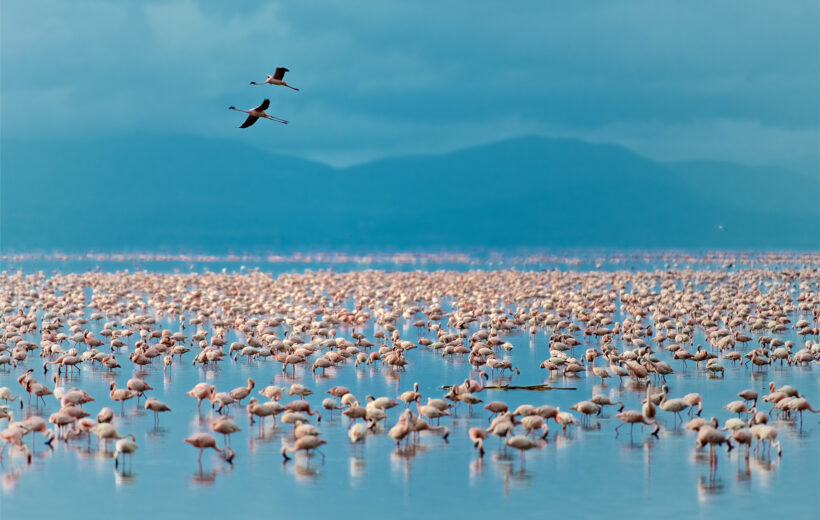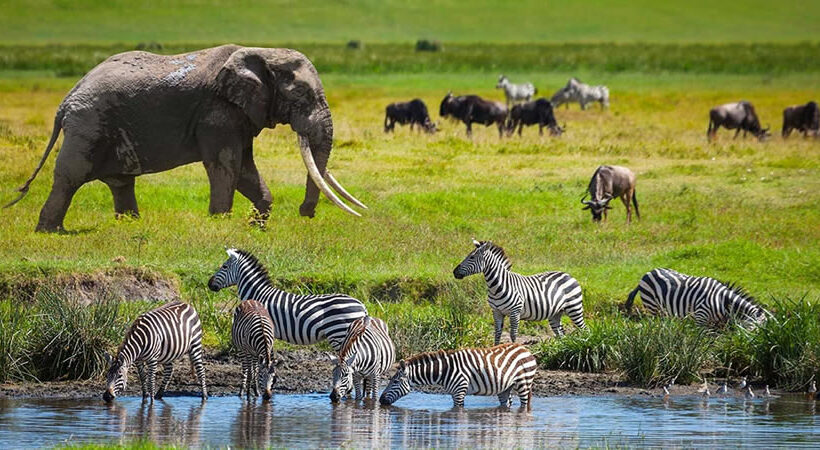Selous Game Reserve
The Wild Heart of Tanzania
Selous Game Reserve, Africa's largest game reserve, is a pristine wilderness that embodies the untamed spirit of the continent. Spanning over 50,000 square kilometers in southern Tanzania, Selous is a UNESCO World Heritage Site and an unparalleled haven for diverse wildlife. With its meandering rivers, expansive grasslands, and dense forests, the reserve provides a habitat for a staggering array of animals, including elephants, lions, hippos, and an impressive variety of bird species. Visitors to Selous can embark on thrilling safaris, boat excursions along the Rufiji River, and immerse themselves in the raw beauty of nature, making it an unforgettable destination for those seeking an authentic African safari experience.
About the
Selous Game Reserve
The Selous Game Reserve is situated in the south of Tanzania, and with 54,600 square kilometres is the largest in Africa and one of the largest in the world. It is three times bigger than the Serengeti. It was established in 1922 and was designated a UNESCO World Heritage site in 1982.
The Selous Game Reserve is a spectacular piece of nature with lots of rivers, creeks, lakes and other waterways surrounding the bush. Its main attractions are:
- The chance to see the wild dog, also sometimes called the African painted dog
- Going for a boat safari on one of the many lakes and waterways
- Taking things slowly and more intimate on a walking safari
- Great bird watching with many waterbirds and migrants at different times
A chance to meet these incredibly successful predators is a good reason to come to the Selous. Although not seen every day, they are regularly spotted and once they have been spotted by one lucky vehicle, others have an easy job to find them as they usually rest during the day.
Don’t miss out on a boat cruise in the Selous. Getting close to the many hippos and crocs as well as seeing the huge variety of waterbirds is a relaxing and different way to go on safari. Other animals come to the shores for a drink. If you do an evening boat cruise, don’t forget to bring a drink for yourself and enjoy a peaceful sundowner whilst the African sun provides the most spectacular sunset.
As the Selous is not a national park, guided walks are an option here. All lodges offer them and you will go out with an armed ranger. The chance of spotting animals is high, including elephant or other bigger animals. It makes walking safaris in the Selous very exciting.
Bird watchers can spot many of the hundreds of species that call the Selous home, including water lovers such as the Pel’s fishing owl, the African skimmer, white-backed night-heron, black heron (think BBC talking animals ‘night-time… daytime…’), white-headed lapwing, and the African spoonbill.
Fly to the Selous Game Reserve
The best way to get to the Selous Game Reserve is to fly. The two main airstrips for the Selous Game Reserve are Siwandu and Mtemere (also sometimes called Selous Lower). Both have scheduled flights arriving and departing daily, including from Dar es Salaam, Zanzibar and Arusha. They are right in the game reserve and it won’t take long from your airstrip to reach your accommodation.
Book your cheap flight to the Selous Game Reserve with Tripindigo today.
Drive to the Selous Game Reserve
It is possible to drive to the Selous Game Reserve, but this takes nearly a full day and some of it is on rough tracks.
The cool, dry months of spring from June to October and the hot and dry summer months of December to February are the best times to visit.
High season
For wildlife viewing the dry season from June to October is best, but the period from November to March also still gives plenty of options to see a huge variety of wildlife. Depending on the rains the Selous might either be very wet during this time, and boat trips are the best way to get around, or it is very dry and a lot of animals can be seen around the remaining water sources.
Low season
Most camps close for the long rains in April and May, opening up again in June.
Best time to see the wild dogs in the Selous Game Reserve
Although the wild dogs are also seen regularly in other times of the year, it is easiest to locate them during their denning period from June to August. This time they will not roam too far from the den and the area to search for them is smaller. This is no guarantee to see them, but it definitely increases your chances.
Best time to see birds in the Selous Game Reserve
The Selous is an excellent birding destination with more than 440 birds species recorded in the area. From November to April migrant birds are also around and the resident birds mate and nest during this time. You will see many in their colourful breeding plumage.
From December to February the colourful northern carmine bee-eaters are in the Selous Game Reserve and if there has been enough rain they will swoop around your safari vehicle as it drives through the grass. Picking up the insects disturbed by the vehicle straight from the air. A truly remarkable and aerobatic sight.
